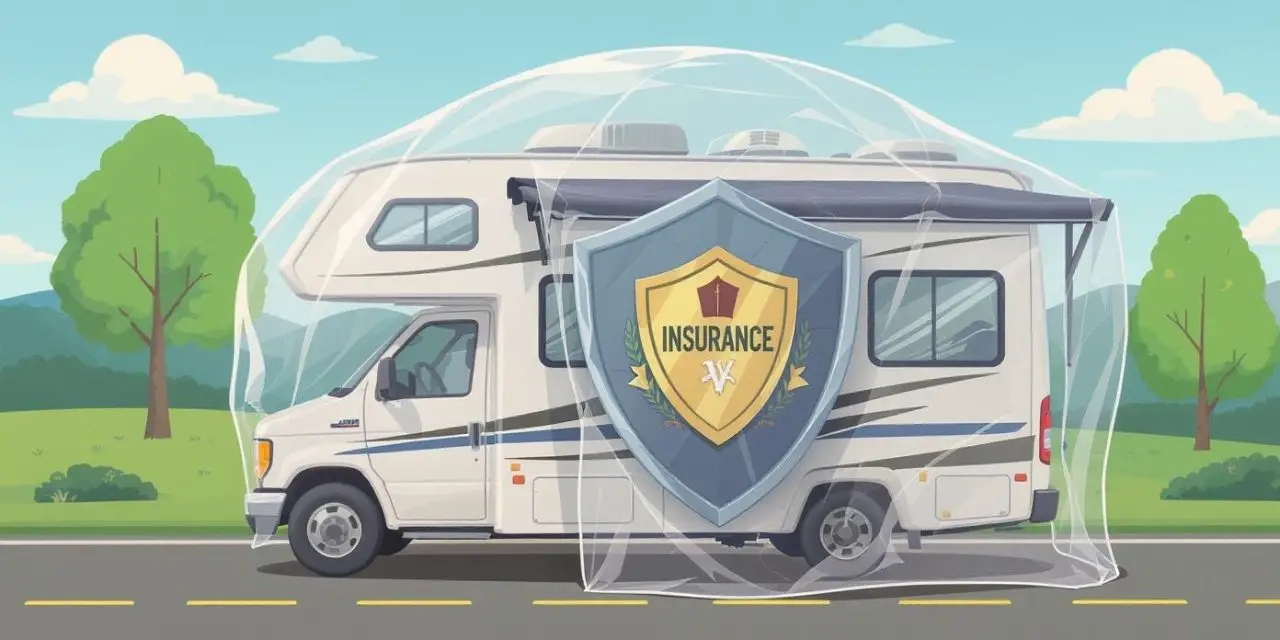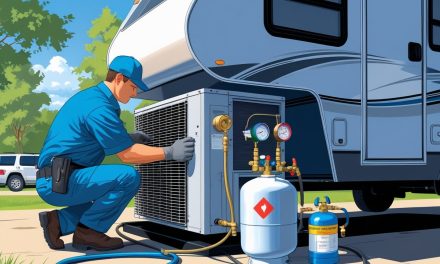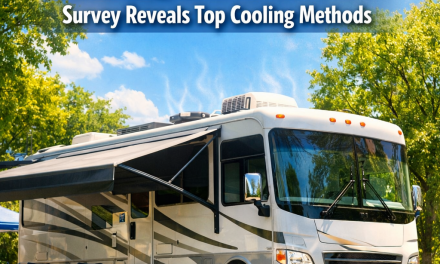RV insurance is one of those topics that makes most people’s eyes glaze over faster than a donut at a truck stop – but it’s also one of the most important aspects of RV ownership that can make or break your adventures on the open road. Whether you’re a weekend warrior with a modest travel trailer or a full-time nomad living the dream in a luxury motorhome, understanding your insurance coverage is crucial for protecting both your investment and your peace of mind. We recently asked our newsletter subscribers about their RV insurance coverage to get a pulse on what types of protection our community is carrying, and the results were both enlightening and, frankly, a little concerning.
This poll was conducted through our newsletter, and if you haven’t been participating in these surveys, make sure to vote in our future polls so you can be part of our findings and help us better understand our amazing RV community. The responses we received paint an interesting picture of how RV owners approach one of the most critical aspects of their mobile lifestyle.
Poll Results: The Insurance Coverage Breakdown
| Coverage Type | Percentage |
|---|---|
| Comprehensive | 71% |
| Liability Only | 5% |
| Full-Timer’s Insurance | 19% |
| Not Sure | 5% |
| Total Votes | 100% |
Would you like to save this article?
The Comprehensive Crowd: Playing It Safe on the Highway
With a whopping 71% of respondents choosing comprehensive coverage, it’s clear that most of our readers understand that RVs aren’t just oversized cars – they’re rolling homes filled with memories, gear, and probably way too many camping gadgets from Amazon. These folks have learned that comprehensive coverage is like a security blanket for your home-on-wheels, protecting against everything from hailstorms in Texas to that unfortunate encounter with a low-hanging branch that seemed to come out of nowhere.
The comprehensive crew likely includes those who’ve either experienced or heard horror stories about RV disasters. They know that when you’re hauling a $100,000+ investment down the interstate, liability-only coverage is like wearing a paper umbrella in a hurricane – technically it’s coverage, but it’s not going to help much when the storm hits.
The “Not Sure” Squad: Lost in Insurance Land
Perhaps the most concerning result is that 5% of respondents admitted they’re “not sure” what coverage they have. Bless their hearts, these are the RV owners who probably signed insurance papers while daydreaming about their next camping adventure, nodding along as their agent explained deductibles and coverage limits while they mentally planned their route to Yellowstone.
This group represents a common phenomenon in the RV world – the excitement of getting on the road often overshadows the mundane details of insurance paperwork. They’re the ones who might discover what coverage they actually have at the worst possible moment, like when they’re standing in a parking lot staring at their damaged RV while trying to remember if they have roadside assistance or just really expensive regrets.
The Full-Timer’s Insurance Faithful: The 19% Who Get It
The 19% who selected full-timer’s insurance are the true veterans of the RV lifestyle. These are the folks who’ve made the leap from weekend camping to full-time living, and they understand that regular RV insurance is like bringing a butter knife to a sword fight when you’re living in your rig 24/7.
Full-timer’s insurance is specialized coverage for those who’ve ditched the traditional house and made their RV their primary residence. It includes coverage for personal belongings, alternative living expenses if their RV becomes uninhabitable, and other protections that regular RV insurance might not cover. This group has done their homework and knows that living the dream requires protecting that dream with the right coverage.
The Liability-Only Lone Wolf: Living Dangerously
Only 5% of respondents chose liability-only coverage, and somewhere out there is one brave (or perhaps financially strapped) soul who’s rolling down America’s highways with the insurance equivalent of crossing their fingers and hoping for the best. This person either has nerves of steel, an RV that’s worth less than a decent used car, or they’re living by the motto “YOLO” in ways that would make insurance agents weep.
Liability-only coverage is like going camping with just a sleeping bag and calling it “minimalist” – technically possible, but you’re going to have a bad time when things go wrong. This coverage only protects other people and their property if you cause an accident, leaving your own RV as vulnerable as a marshmallow at a campfire.
Why These Results Make Perfect Sense (And Why They Don’t)
The dominance of comprehensive coverage in our poll results reflects a community that’s learned some hard lessons about RV ownership. Most RV enthusiasts have either experienced damage firsthand or know someone who has, and they’ve realized that comprehensive coverage isn’t just a luxury – it’s a necessity when you’re dealing with a vehicle that’s part home, part transportation, and part lifestyle statement.
The relatively small percentage of full-timer’s insurance holders (19%) is actually quite reasonable, considering that full-time RVing is still a specialized lifestyle choice. However, this number might be artificially low because some full-timers might have selected “comprehensive” not realizing that full-timer’s insurance is a distinct category with additional protections.
The concerning 5% who aren’t sure about their coverage highlights a common problem in the RV community – the complexity of insurance options can be overwhelming, especially for newcomers to the lifestyle. Many RV owners focus so much on the fun aspects of their purchase that they gloss over the insurance details, only to discover gaps in coverage when it’s too late.
The single vote for liability-only coverage represents the reality that not everyone can afford comprehensive coverage, and some people are making calculated risks based on their financial situation and the value of their RV. While it’s not ideal, it’s better than having no insurance at all.
These results ultimately reflect a community that’s becoming more educated about the importance of proper RV insurance, but there’s still room for improvement in helping RV owners understand their options and make informed decisions about protecting their mobile adventures.







